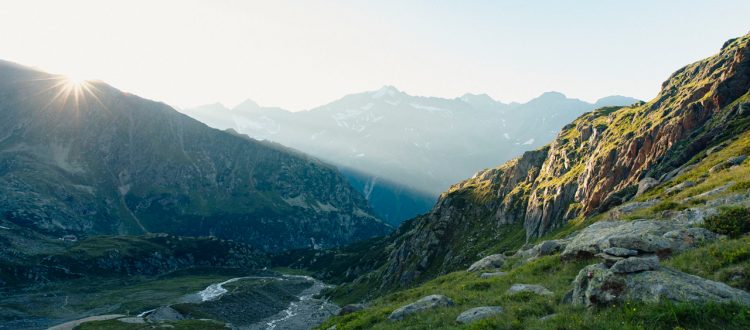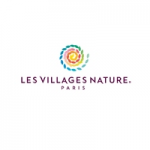Take those first green steps on holiday, in the Austrian Tirol
The climate crisis is not a new issue, but Covid-19 has certainly helped highlight it. Last year, when countries closed their borders, planes stayed on runways, and people stayed at home – major cities around the world saw incredible drops in air pollution. This decrease benefitted the bee population, the quality of water improved, and wildlife reclaimed what was rightfully theirs (and even posed for some pictures).
The millions of vaccines now rolling out means there is light at the end of the tunnel in terms of the pandemic, but hopefully not an end to people being more sustainable.
The Austrian Tirol has launched Eco.Tirol – a new section of the website to promote ‘The Tyrolean Way’ showcasing ‘big experiences with a small carbon footprint’. From leaving bigger capitals to learning how to recycle more, to dining at slow food huts and staying at Bio Hotels. The list is long, and its prime objective is to get people outside, enjoying nature, while learning more about the local community.
Florian Phelps, Managing Director of Tirol Werbung, says: “The topic of sustainability is diverse. It ranges from regional food to sharing offers for sports equipment, to the accessibility of the mountains by public transport. The whole country is working on good developments in innumerable small steps”.
Read on to find out more details below. If you would like any more information, or images, please just let me know.
Best wishes,
Rosie
These boots are made for walking
Making the most of the great outdoors on two feet can really help health. Harvard University published a piece that says, ‘hiking is a good way to improve your cardiovascular fitness, [and] the uneven surface of the trail provides a natural way to engage the core muscles in your torso and to hone your balance skills’. It also shows how spending time in green space may ease people’s stress levels, which can only be a good thing in this day and age! Home to circa 24,000 km of marked hiking trails, from gentle undulating hills to rocky mountain peaks, trekking is the perfect way to explore the Heart of the Alps. Sample the Eagle Walk, which traverses more than 400 km across the middle of the Tirol and demonstrates the sheer beauty of the destination. Alternatively, check out the Peter Habeler Trek in the Zillertal Alps. Taking in many mountains and peaks, the multi-day route can be completed as a loop or from east to west. Or why not head up to 2,830 metres altitude, the height of the highest bus stop in Tirol? Perched on the edge of the Tiefenbachferner glacier in the Ötztal Valley, it’s the perfect starting point for hikers looking for spectacular views without too much uphill effort. For those who fancy another activity, the Austrian Tirol is also home to mountain biking, cycling, wild swimming, white water rafting, climbing, paragliding…
For more information, visit: www.tyrol.com/things-to-do/sports/hiking
Supper is ready
Last year, the World Economic Forum advised countries and consumers to support ‘local food systems with shorter, fairer and cleaner supply chains that address local priorities’ post Covid. A survey, then conducted by Ipsos Mori and the Food Standards Agency in the UK, found 35% of consumers are buying more local foods than before the crisis. The Austrian Tirol is home to a variety of cultural landscapes and plenty of very experienced farmers; the region is able to produce a wide range of food from cheese and fruit to meat and vegetables, plus some delicious drinks. Zillertal Beer, which has been in the same family for more than 16 generations, is working hard to become a CO2-neutral brewery. Martin Lechner, the managing director, says: “Carbon dioxide is produced in the brewing process, but much more is needed in the beer itself. We capture this excess carbon dioxide and process it in our own facility. With this carbon dioxide obtained, we empty tanks and displace the oxygen during filling, which would damage the beer. Savings through this measure alone save 200 tons of CO2 per year”. All local produce can be bought in the supermarkets, purchased at one of the many markets, tasted in a restaurant or even enjoyed at one of the environmentally friendly Bio Hotels – all of which pride themselves of serving only the most local fare. Many of the Bio Hotels have received the “Grüne Haube” award in recognition of their healthy food, with vegan and vegetarian dishes often available. Join the owners of the Bio Hotels in their vegetable gardens, accompany them as they collect fresh chicken eggs and learn from them on a foraging walk.
For more information: www.tyrol.com/book-your-holiday/biohotels
To the Bio Hotel
Combining healthy food, sustainable design and local produce, the Austrian Tirol is home to a number of Bio Hotels. Think saunas made from larch and pine, the use of natural materials such as stone and felt in the bedrooms, and food sourced from the nearest organic farms. For a waterside location, head to Biohotel Stillebach (which means calm stream). Located in the heart of Pitztal Valley, organic materials can be found throughout this accommodation. During the summer, guests can swim in the lake, join in with weekly BBQ evenings and take part in themed buffet nights. A night’s stay costs from €86 / £77 total for two people sharing a room including breakfast. Visitors after a more relaxing retreat might like Bio und Wanderhotel Leutascherhof. Awarded a Grüne Haube for its organic food made from healthy produce and sourced from the local region, the hotel also has a selection of saunas, a soothing massage service and a chillout room with fantastic views of the surrounding landscape. A night’s stay costs from €77 / £70 for two people sharing a room including breakfast. And for a very family orientated stay, Biohotel Grafenast, with its forest sauna, secret garden, and green space, is ideal. Having been in the same family for three generations, the Grafenast has won several awards for sustainability and the restaurant has been awarded a Green Toque (an Austrian certificate for award-winning locally sourced vegetarian and vegan cuisine). As well as delicious food, guests can expect TV-free rooms, minimal wireless internet (service is provided in one room), a solar-heated outdoor pool, a meditation room, Panorama Spa and hiking paths from the front door. Basically, a place to leave any worries behind… A night’s stay costs from €113 / £102 total for two people sharing a room including breakfast.
For more information: www.tyrol.com/book-your-holiday/biohotels




